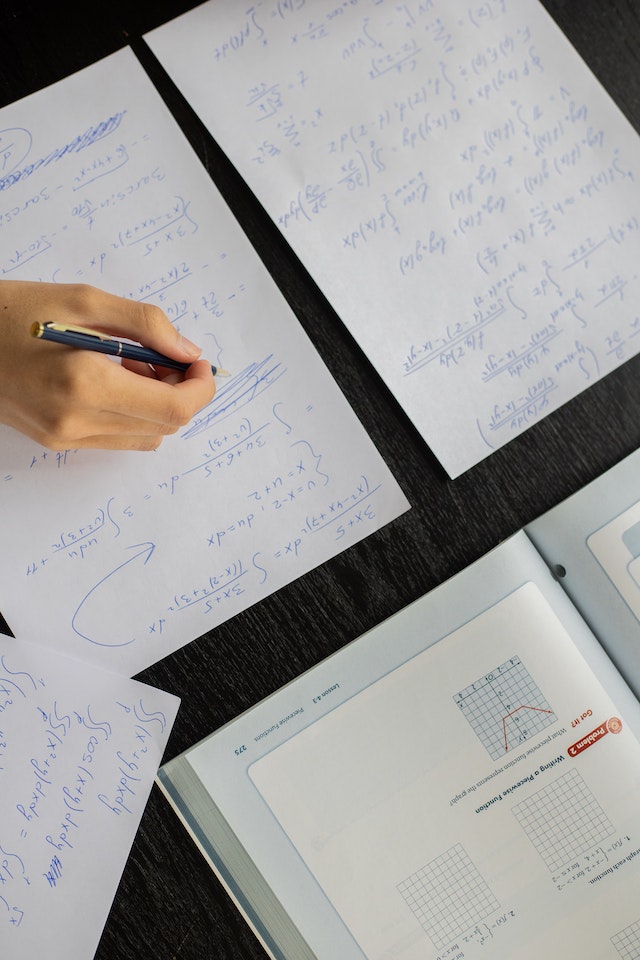
The Series 7 exam is a critical part of becoming a licensed securities broker. This exam is required for individuals who want to sell a wide variety of securities products, including stocks, bonds, mutual funds, and options. To pass the Series 7 exam, you must score at least 72% on the 125-question exam. However, achieving a passing score isn’t the only thing you should focus on.
In this article, we’ll explore what you should be scoring on Series 7 practice exams to feel confident and prepared for test day.
What The Series 7 Exam Covers?
Firstly, let’s discuss what the Series 7 exam covers. The exam is broken down into four main sections:
- Seeks Business for the Broker-Dealer through Customers and Potential Customers
- Opens Accounts After Obtaining and Evaluating Customers’ Financial Profile and Investment Objectives
- Provides Customers with Information About Investments, Makes Recommendations, Transfers Assets and Maintains Appropriate Records
- Obtains and Verifies Customers’ Purchase and Sales Instructions; Processes, Completes and Confirms Transactions
Each section is further divided into subtopics that are tested in the questions. These subtopics can range from understanding different types of securities and their risks to regulatory requirements and prohibited activities.
What Should You Be Scoring On Series 7 Practice Exams?

Now, let’s talk about what you should be scoring on your Series 7 practice exams. Ideally, you should aim to score at least 80% on your practice exams. Scoring at this level indicates that you have a strong understanding of the material and are well-prepared for the actual exam.
However, don’t panic if you aren’t scoring at 80% on your first few practice exams. It’s important to remember that practice exams are designed to help you identify areas where you need to improve. Use your practice exam results to identify weak spots in your knowledge and focus on those areas during your study time.
It’s also essential to take multiple practice exams. While getting a good score on one practice exam is an excellent achievement, taking multiple exams will give you a better understanding of the breadth and depth of the material covered on the actual Series 7 exam.
When you’re reviewing your practice exams, don’t just focus on the questions you got wrong. Take the time to understand why you got a question wrong and what you can do to avoid making the same mistake on the actual exam.
Another important aspect to consider is time management. The Series 7 exam is a marathon, not a sprint. You’ll have 225 minutes (3 hours and 45 minutes) to complete the 125-question exam. That’s less than two minutes per question.
Don’t Succumb To Time Pressure
To prepare for the time pressure, it’s crucial to take practice exams under timed conditions. Use a stopwatch or a timer to keep track of how much time you’re spending on each question. If you find yourself taking too long on a particular question, make your best guess and move on. You can always come back to the question later if you have time left over.
It’s also important to note that the Series 7 exam is adaptive. This means that the difficulty of the questions will change based on how well you’re doing. If you’re answering questions correctly, the exam will start asking more challenging questions. Conversely, if you’re answering questions incorrectly, the exam will start asking easier questions.
This adaptive nature of the exam means that it’s important to be well-prepared for a range of difficulty levels. When you’re taking practice exams, make sure to include questions of varying difficulty levels. This will help you get comfortable with the idea of answering challenging questions and will ensure that you’re well-prepared for whatever the exam throws at you.
How Many Practice Tests Should You Take In Preparation For The Series 7 Exam?
It’s recommended that you take at least 10 full-length practice exams before taking the actual Series 7 exam. This will give you enough time to identify your weak spots and properly prepare for test day. Additionally, it’ll help ensure that you’re completely comfortable with the format of the exam and have an understanding of how to approach each question. You can watch this online video course for the Series 7 exam to get more information.
More Tips To Remember When Reviewing For The Series 7 Exam
In addition to taking practice exams, there are several other things you can do to prepare for the Series 7 exam. One of the most important is to study regularly. Don’t wait until the last minute to start studying. Instead, set aside time each day or week to review the material covered on the exam.
Another helpful strategy is to create a study group with other individuals who are preparing for the exam. Studying with others can provide a support system and can help you stay motivated. It’s also an excellent way to learn from others’ knowledge and experiences.
Finally, utilize resources such as study materials, flashcards, and online courses to supplement your studying. There are many excellent resources available that can help you better understand the material covered on the Series 7 exam. You can also get a Series 7 exam tutor if you’re struggling to understand certain concepts.
How A Series 7 Exam Tutor Can Help You Prepare For This Test?
A Series 7 exam tutor can be an invaluable resource when it comes to preparing for this test. A tutor will be able to identify your strengths and weaknesses and provide you with personalized feedback and guidance. They can also help you develop a study plan, create practice tests, and answer any questions you may have.
Hiring a Series 7 exam tutor can be a great way to ensure you are as prepared as possible for the test. Here is a step-by-step guide to hiring a Series 7 exam tutor:
- Research
Start by researching various tutoring services and local tutors in your area who specialize in Series 7 exams.
- Interview
Once you find a few potential tutors, arrange for an initial interview to ensure they have the right qualifications and experience to help you succeed on the exam.
- Discuss Expectations
During your initial meeting with your tutor, discuss your expectations and make sure that both of you are on the same page about how much time is needed to prepare for the exam and what will be covered.
- Set Goals
Develop a timeline for when you want to take the exam and set goals with your tutor such as weekly or monthly objectives that you both agree upon.
- Evaluate Progress
Regularly evaluate your progress in order to track improvements and identify areas where you may need additional help.
Bottom Line
Overall, taking the Series 7 exam is a challenging but rewarding experience that can open new doors for you in your career as a financial advisor. However, it’s important to prepare properly and take multiple practice exams in order to be successful. With the right preparation and resources, you can pass the exam and become a licensed financial advisor. Good luck!

Leave a Reply